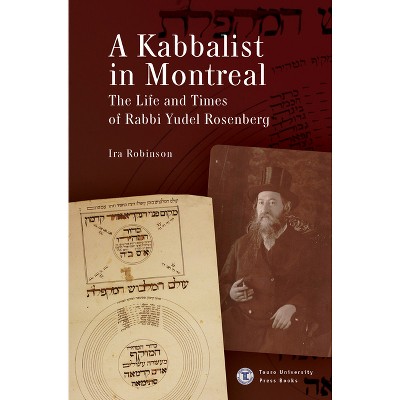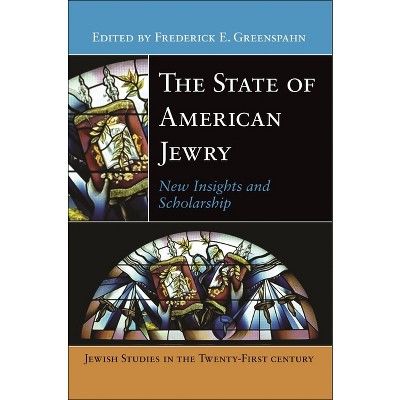Sponsored

French Jewry and the Church-State Dilemma - by Zvi Jonathan Kaplan (Hardcover)
In Stock
Sponsored
About this item
Highlights
- As this book demonstrates, the organized French Jewish community strategically charted the political waters by steering clear of extremist political positions and by adopting a "soft clerical" approach to Church-State issues.
- About the Author: Zvi Jonathan Kaplan is Professor of History and Chair of the Department of History at Touro University.
- 166 Pages
- History, Europe
Description
About the Book
As this book demonstrates, the organized French Jewish community strategically charted the political waters by steering clear of extremist political positions and by adopting a "soft clerical" approach to Church-State issues. This centrist approach subjected French Jews to criticism from both anticlerical and clerical forces, but nonetheless the rabbinate, consistorial officials, and the Jewish press believed that French Judaism and French Jewry would thrive most in a climate of moderation.
Book Synopsis
As this book demonstrates, the organized French Jewish community strategically charted the political waters by steering clear of extremist political positions and by adopting a "soft clerical" approach to Church-State issues. This centrist approach subjected French Jews to criticism from both anticlerical and clerical forces, but nonetheless the rabbinate, consistorial officials, and the Jewish press believed that French Judaism and French Jewry would thrive most in a climate of moderation.
Review Quotes
"Kaplan convincingly demonstrates that, as distinct from a handful of militantly anti-clerical republican politicians of Jewish origins, the organized French Jewish community took a moderate and pragmatic approach to Church-State relations throughout the nineteenth century. In this newly revised and expanded edition of his previous publication, Kaplan extends his study to the eve of the First World War. He tracks how French Jews adapted to the tumultuous events of the Dreyfus Affair and the 1905 Separation law, including the challenges posed to Jewish tradition by secular marital law. While the steep rise in right-wing Catholic antisemitism during the Affair pushed representatives of French Jewry deeper into the republican camp, their approach ultimately remained one of 'soft clericalists' who, like their American counterparts, demonstrated flexibility and moderation on the issue of church and state."
-Nadia Malinovich, author of French and Jewish: Politics and the Culture of Identity in Early Twenty Century France
"Kaplan tells the story of Jewish communities in France after political emancipation, as they navigated the fraught Church-State issue from the time of the French Revolution until the Great war. He animates his story for the struggle to remain Jewish in revolutionary France and the antisemitic fin-de-siecle with great figures, such as Adolphe Créeacute;mieux, against the broader sociological landscape of the Jewish establishment. His source materials are thus broadly conceived, with the world of journals, pamphlets, consistorial documents, correspondences, legislation, and even rabbinic sermons opening up new vistas onto the development of Jewish debates on the relationship between religion and government."
--Maya Balakirsky, Bar-Ilan University, Department of Jewish Art
About the Author
Zvi Jonathan Kaplan is Professor of History and Chair of the Department of History at Touro University. He received a law degree from the University of Toronto and a Ph.D. in History from Columbia University. Kaplan has published extensively on Moses Mendelssohn, Hungarian Ultra-Orthodoxy, and modern French Jewish history. He is the author of the book Between the Devil and the Deep Blue Sea? French Jewry and the Problem of Church and State (Brown Judaic Studies) and co-editor of The Jews of Modern France: Images and Identities (Brill Press).










